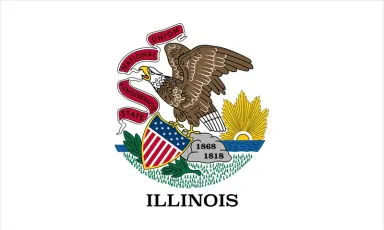Michigan Trucking Laws

Michigan’s state trunkline highway system is a 9,655-mile network of roads posted with Interstate-, M-numbered, and US-route designations maintained by the Michigan Department of Transportation (MDOT). According to the Michigan Traffic Crash Facts, published by the Office of Highway Safety Planning (OHSP), 282,640 crashes occurred in 2021 in and around the highway system. These crashes resulted in 1,131 deaths and 71,246 injuries.
Most crashes happened on country and city roads, with a total of 173,240. In a study conducted by Michigan Auto Law, they identified the 20 most dangerous intersections where 31.3% of fatal crashes occurred.
In addition, 14,972 crashes involved heavy trucks/buses, with 103 fatal collisions, 2,586 injury crashes, and 12,283 property damage-only accidents.
Michigan’s Highway Safety Plan (HSP) for 2023 aims to reduce fatalities resulting from traffic crashes. Several programs include implementing enforcement and public education programs related to speeding and impaired driving, as well as using seat belts and child-safety restraint devices.
Furthermore, the state has been implementing laws, policies, and regulations to reduce traffic crashes further and protect motorists, passengers, and pedestrians from property damage, injuries, and death. These will be discussed in detail throughout this article.
Michigan Speeding Laws
Michigan’s speeding law prohibits anyone from operating a vehicle faster than the speed limit. It also states that a person should drive a vehicle with caution and propriety while paying attention to the amount of traffic, the road's surface and its width, and any other conditions that may be present.
In 2021, 24,555 crashes involved speeding, based on the Michigan Traffic Crash Facts report. These crashes resulted in 237 deaths and 924 serious injuries.
Below are the speed limits in Michigan:
15 miles per hour (mph) on a highway segment within the boundaries of a mobile home park
25 mph on a highway segment within a business district
25 mph on a highway segment within the boundaries of a public park
25 mph in residential areas
55 mph on undivided rural roads
65 mph on divided roads
70 mph on urban freeways
70 mph on rural freeways (60 mph for trucks)
Violating the speed limit is classified as a civil infraction. It also differs in every county. Generally, if the civil infraction was a moving violation and resulted in an accident, the fine is increased by $25. For drivers who violate the speed limit with an explanation, the minimum penalties are as follows:
1 to 5 mph over the limit: $10
6 to 10 mph over the limit: $20 and one-point demerit
11 to 15 mph over the limit: $30 and two-point demerit
16 to 25 mph over the limit:$40 and a three-point demerit
Over 26 mph over the limit: $50 plus $4 per additional mile and a four-point demerit on the driving record
The demerit points will remain on the driving record for two years from the conviction date.
If you were hit by a speeding truck, stay calm and help those hurt. Avoid moving injured people, especially if it might worsen their condition. Contact the police and request medical services. Document and gather information regarding all injuries and damages to your vehicle. Write down information, such as the location of the accident, the time and weather conditions at the time, and a description of how the accident happened, which can help you in the future if you need to file a lawsuit. It is also important not to discuss the details of the accident with the other driver and the trucking company’s insurance adjusters unless you have contacted a trucking accident lawyer.
Michigan Distracted Driving Law
Michigan’s distracted driving law prohibits anyone operating a motor vehicle from reading, typing, or sending text messages on wireless two-way communication devices. It is also illegal to use a handheld mobile phone for voice communications while operating a commercial motor vehicle (CMV) on a highway, including when briefly stopped due to traffic. They may only do so if the CMV has been moved to the side or off the road and it remains safely stationary.
According to the Michigan Traffic Crash Facts report, 16,543 crashes in 2021 involved distracted drivers. These crashes resulted in 59 deaths, 407 serious injuries, and 1,914 minor injuries.
Exceptions to the distracted driving law:
A person reporting a traffic accident, serious road hazard, or medical emergency
A person reporting a situation that compromises an individual's safety
A person reporting a criminal act by another person
Law enforcement officers, fire department volunteers, and emergency vehicle operators performing their official duties
Penalties for distracted driving:
First offense - a fine of $100
Second and subsequent violations - a fine of $200
If you are injured in an accident involving a distracted truck driver, it is important to contact a trucking accident lawyer immediately to help you focus on your recovery. They may also assist in gathering pieces of evidence, such as the driver’s logs and cell phone records, the truck’s electronic data recorder, accident scene photos, dash cam, in-cab camera footage, eyewitness statements, and police crash reports.
Michigan Impaired Driving Law
Michigan’s impaired driving law prohibits any person from driving a commercial motor vehicle with an alcohol content of 0.04 grams or more. Based on the Michigan Traffic Crash Facts report, 336 out of 1,068 fatal crashes in 2021 were alcohol-related, while 259 fatal crashes involved drugs.
Penalties for impaired driving:
First offense - classified as a misdemeanor punishable by up to 93 days in jail and $300 in fines
Second offense within seven years - up to one year in jail or $1,000 in fines
Third offense within ten years - classified as a felony punishable by one to five years in jail and $500 to $5,000 in fines
If you are injured in an impaired driving accident, your no-fault insurance coverage will pay for your accident-related medical bills and lost wages. However, if your claim exceeds policy limits, you can sue the at-fault driver for excess benefits. It is important to hire a trucking accident lawyer to determine and establish liability, calculate the value of your claim, and negotiate with the insurance company.
Michigan Commercial Trucking Insurance Requirements
The basic auto insurance policy requirements in Michigan have three parts:
Personal Injury Protection (PIP)
PIP covers medical expenses, wage loss, and replacement services. PIP coverage options are as follows:
Unlimited coverage
$500,000 per person, per accident
$250,000 per person, per accident
$250,000 per person, per accident with exclusions
A named insured who is excluding PIP medical must have qualified health coverage that is not Medicare.
Any resident relative or spouse who is excluded from PIP medical coverage should have qualified health coverage.
$50,000 per person, per accident
The applicant or named insured must be enrolled in Medicaid.
Any spouse and all resident relatives must have qualified health coverage, be enrolled in Medicaid, or be covered under another auto policy with PIP medical coverage.
No medical PIP coverage
The insured must have Medicare Parts A and B.
Any spouse and all resident relatives must have qualified health coverage or be covered under another auto policy with PIP medical coverage.
Property Protection (PPI)
Property protection insurance pays for up to $1 million in damages to other people’s property, including fences and buildings, as well as properly parked vehicles. It does not pay for damage to other cars.
Residual Liability Insurance - Bodily Injury and Property Damage (BI/PD)
This section of the insurance policy pays for damages when the policyholder is legally responsible for the following circumstances:
The policyholder caused an accident in Michigan that resulted in serious injuries or permanent disfigurement.
The policyholder is involved in an accident with a non-resident whose vehicle is not registered in Michigan.
The policyholder is involved in an accident in a different state.
If the policyholder is 50% liable for the accident that caused damage to another person’s vehicle not covered by insurance.
The default coverage is up to $250,000 for a person hurt or killed in an accident; up to $500,000 for each accident if several people are hurt or killed; and up to $10,000 for property damage in another state.
Other Insurance Requirements
The Federal Motor Carrier Safety Administration (FMCSA) requires truckers to have primary liability insurance coverage with the following minimum limits:
$300,000 - vehicles under 10,001 lbs. carrying non-hazardous freight
$750,000 - vehicles over 10,001 lbs. carrying non-hazardous freight
$1 million - for-hire and private vehicles carrying oil
$5 million - for-hire and private vehicles carrying hazardous materials
Other insurance coverages available are as follows:
General liability - covers risks outside of operating a truck, including wrong deliveries and slip-and-fall accidents in the office. Most policies start at $300,000; the most common limits are $1 million per occurrence with a $2 million aggregate.
Physical damage - includes collision and comprehensive coverages. Insurance premiums normally cost between $2 and $3 per month per thousand of the truck’s value.
Motor truck cargo - covers different types of cargo losses, such as stolen goods, loss of freight charges, and water-damaged cargo. The insurance premium ranges from $400 to $1,00 per year, and the policy limits range from $50,000 to $250,000.
Bobtail insurance - pays for property damages or injuries while the trailer is detached from the truck.
Non-trucking liability - pays for property damage or injuries while the truck is not being used for business purposes.
Trailer interchange - ranges from $10,000 to $30,000 (with a $1,000 deductible) and covers trailers against physical damage during loading and unloading.
Medical payments - pay for individuals riding or driving the truck with the owner’s consent.
Uninsured/Underinsured motorist coverage - pays for damages caused by another driver who is uninsured or underinsured.
Workers’ compensation - ranges from $4,560 to $8,550 per year and pays for injuries sustained by the company’s truck drivers who are injured while performing their job.
Trucking umbrella insurance - can be obtained in $1 million increments. It covers gaps between your other policies.
How Much Can Someone Sue for a Truck Accident in Michigan?
People injured in a truck accident can seek compensation to cover economic, non-economic, and exemplary damages. They can sue any person or entity responsible for the accident, including the truck driver, trucking company, trailer owner, load broker, vehicle or parts manufacturer, or government entity. Trucking accident lawyers can help determine the maximum amount to ask for these damages.
Economic Damages
Economic damages refer to the victim’s financial losses, which can be proven by bills and receipts. These include damage to property, present and future medical expenses, lost wages and future earning capacity, caregiving costs, and mileage to and from medical appointments.
Non-Economic Damages
Non-economic damages refer to losses that do not have monetary costs. These cover pain and suffering, emotional trauma, including PTSD, loss of quality of life, and loss of consortium.
If the truck accident involved medical negligence and product liability, the state law imposes a damage cap that changes yearly. For 2023, the lower cap for non-economic damages has increased to $537,900 from $497,000 in 2022, and the upper cap has risen to $960,500 from $887,500 in 2022.
Exemplary Damages
Exemplary damages are compensatory, unlike punitive damages that intend to punish or make an example of the defendant for their intentional misconduct. The judge or a jury may decide to award exemplary damages if:
the victim’s dignity is impacted by the injuries
the victim feels insulted and humiliated
the damage was severe
the defendant had a chance to protect the victim but chose not to
Michigan Statute of Limitations for Truck Accidents
The statute of limitations for truck accidents in Michigan is three years. Individuals who have been injured due to someone else’s negligence should file a lawsuit within three years of the date of the accident. Additionally, the deadline for filing a wrongful death claim is three years from the date of the victim’s death.
The three-year statute may be tolled or delayed when:
the injured victim becomes mentally incapacitated due to the accident. Once a sane diagnosis has been issued, the lawsuit should be filed within one year.
the victim is a minor; if such is the case, the clock begins when the victim turns 18.
the at-fault driver leaves the state.
Michigan Is a No-Fault State for Insurance Claims
Michigan is a no-fault state for insurance claims, which means insurance companies pay for expenses and damages regardless of who caused the accident. The driver’s PIP coverage will pay for the medical expenses. No-fault insurance also covers funeral expenses (a minimum of $1,750), childcare costs, survivor’s loss, and household services. If the PIP coverage is insufficient to pay the accident-related medical bills, the plaintiff may sue the at-fault driver. For property damage, the mini-tort coverage is $3,000 for any deductible not paid by the insurance.
The state law also mentions that the no-fault PIP benefits can pay for the first three years of lost wages, and the amount will be up to $80,000 a year. If the victim earns more than $80,000 a year, they are entitled to excess wage loss to be paid for by the at-fault party’s insurance policy. For cases involving interstate trucks, the minimum policy limit is $750,000.
Most of the time, insurance companies will do their best to keep the settlement within the policy limits, which is why it is important to hire a trucking accident lawyer.
Michigan Is a Modified Comparative Fault State for Trucking Accident Lawsuits
Michigan follows the modified comparative fault system, under which a person who is partially at fault in a truck accident can seek compensation through a truck accident lawsuit. The victim’s percentage of fault is deducted from the total compensatory award. However, if they are found to be more than 50% at fault for the accident, they are not eligible to recover any non-economic compensation.
Average Settlement for Michigan Trucking Accident Lawsuits
It is hard to determine the average settlement amount for truck accident lawsuits in Michigan because every case is unique. Some settlements can cost tens of millions of dollars, especially for multi-vehicle crashes. Although it might be possible to calculate the average of all published truck accident settlements, the resulting amount does not serve as a basis for estimating the value of a new case.
Since a truck accident may result in catastrophic damages, hiring an experienced trucking accident lawyer is important to assist in computing fair compensation. To determine the settlement amount, they need to consider several factors, such as:
The degree of fault of all parties involved in the crash
The severity of the injuries, which may include bone fractures, brain trauma, and spinal cord injuries
The extent to which the injuries have interfered with the victim’s daily activities and routine
The psychological and emotional trauma brought on by the injuries and the accident
The presence of permanent scars and disfigurement
The types of medical procedures, surgeries, and rehabilitation needed
The loss of income and future earning capacity
The insurance policy limits of the negligent truck driver and the trucking company
Legal Resources for Michigan Trucking Accident Victims
Michigan Center for Truck Safety
The Michigan Center for Truck Safety (MCTS) website provides guidebooks, brochures, and videos about the state’s regulations and requirements for the trucking industry. It also issued the Truck Driver's Guidebook, which educates drivers on how to be Truck SMART (Safe Motoring And Responsible Transportation).
Michigan Department of Insurance and Financial Services (DIFS)
The Office of Consumer Services of the DIFS investigates complaints against and resolves disputes with insurance companies. It also provides consumer protection, financial literacy, and outreach. For further inquiries, contact DIFS at (877) 999-6442.
Michigan Trucking Association
The Michigan Trucking Association offers state and federal transportation regulation assistance, legislative representation, and trucking-related training. Their address is 1131 Centennial Way, Lansing, MI 48917, and their contact number is (517) 321-1951.
Michigan Traffic Crash Facts (MTCF)
The Michigan Traffic Crash Facts website provides the official crash data yearly. The website comprises two sets of resources: Publications, which includes accident statistics going back to 1952, and the Data Query Tool, which enables users to conduct sophisticated searches on the data over specific elements.
Michigan State Police (MSP)
The Michigan State Police is responsible for providing law enforcement and public safety services throughout the state. Its website lists the contact details of all MSP posts where citizens can report a traffic crash. People involved in traffic crashes can also purchase traffic crash reports through MSP’s website.
Expertise.com StaffAuthor
Step into the world of Expertise.com, your go-to hub for credible insights. We don't take accuracy lightly around here. Our squad of expert reviewers, each a maestro in their field, has given the green light to every single article you'll find. From rigorous fact-checking to meticulous evaluations of service providers, we've got it all covered. So feel free to dive in and explore. The information you'll uncover has been stamped with the seal of approval by our top-notch experts.




